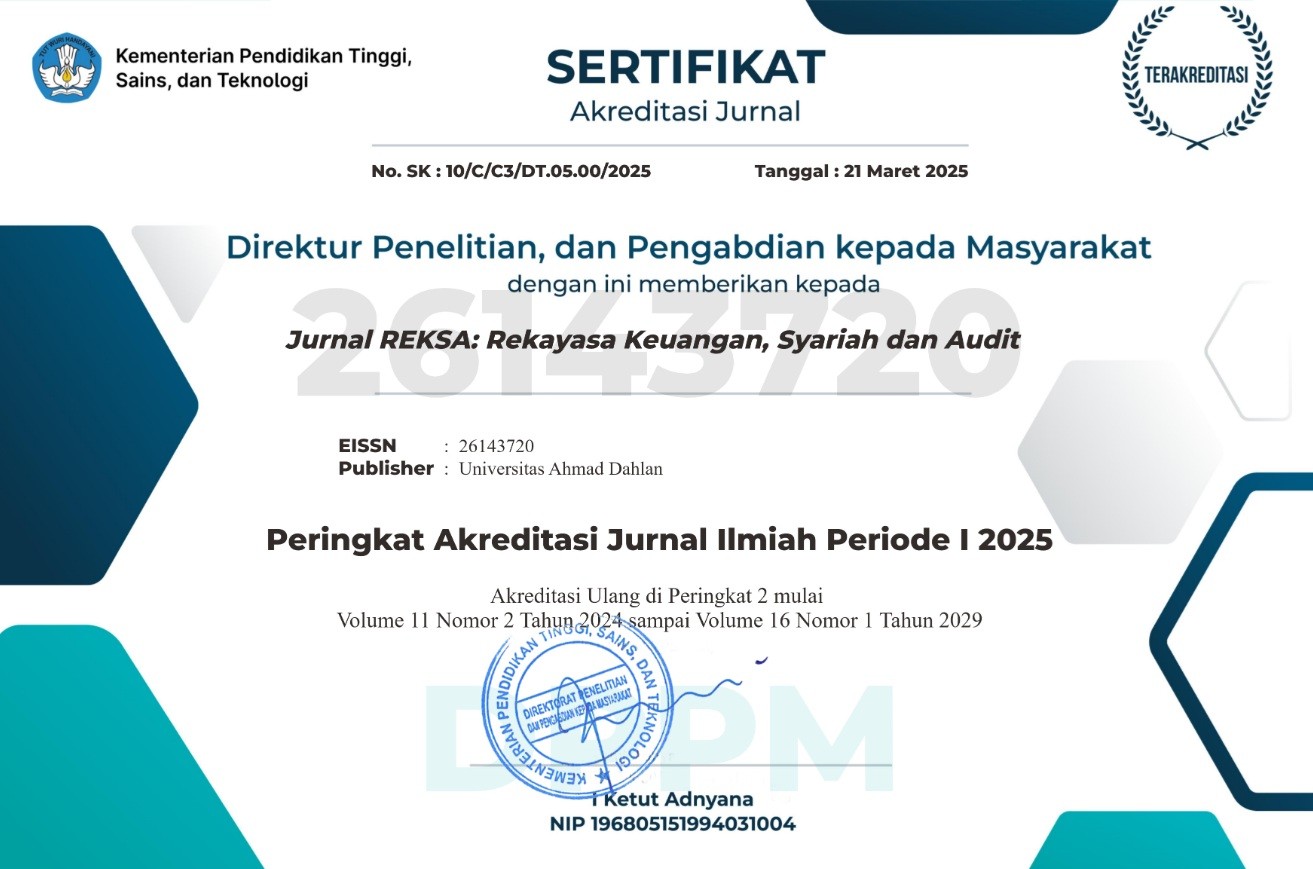EFEKTIVITAS PENAGIHAN PAJAK DENGAN SURAT TEGURAN DAN SURAT PAKSA TERHADAP PENERIMAAN PAJAK PADA KANTOR PELAYANAN PAJAK PRATAMA SLEMAN
DOI:
https://doi.org/10.12928/j.reksa.v3i1.26Keywords:
Effectiveness, billing taxes, letter of reprimand, and forced LetterAbstract
Tax collection by using a letter of reprimand and forced letter is an effort to increase the effectiveness of tax revenue that purpose as the country's development. This research method aims to determine the level of effectiveness of the tax collection and forced letter warning letter. The research method uses descriptive method of analysis, methods based on existing data, and then draw conclusions. This study uses secondary limit the period 2011-2012. Analysis using ratio analysis to calculate the effectiveness of tax collection by using related variables that include the amount of the tax billing plan and the amount of tax revenue. The results showed that the effectiveness of tax collection with a letter of reprimand and a letter run ineffectively enforced, so expect authorize agencies in collecting tax debts can be optimized, see realize taxes are still very smallDownloads
Published
2018-07-04
How to Cite
Wahyuningtyas, F., & Ariesanti, A. (2018). EFEKTIVITAS PENAGIHAN PAJAK DENGAN SURAT TEGURAN DAN SURAT PAKSA TERHADAP PENERIMAAN PAJAK PADA KANTOR PELAYANAN PAJAK PRATAMA SLEMAN. Jurnal REKSA: Rekayasa Keuangan, Syariah Dan Audit, 3(1), 23–40. https://doi.org/10.12928/j.reksa.v3i1.26
Issue
Section
Articles
License
Authors who publish with JURNAL REKSA agree to the following terms:
- Authors retain copyright and grant the JURNAL REKSA right of first publication with the work simultaneously licensed under a Creative Commons Attribution License (CC BY-SA 4.0) that allows others to share (copy and redistribute the material in any medium or format) and adapt (remix, transform, and build upon the material) the work for any purpose, even commercially with an acknowledgment of the work's authorship and initial publication in JURNAL REKSA.
- Authors are able to enter into separate, additional contractual arrangements for the non-exclusive distribution of the journal's published version of the work (e.g., post it to an institutional repository or publish it in a book), with an acknowledgment of its initial publication in JURNAL REKSA.
- Authors are permitted and encouraged to post their work online (e.g., in institutional repositories or on their website) prior to and during the submission process, as it can lead to productive exchanges, as well as earlier and greater citation of published work (See The Effect of Open Access).




